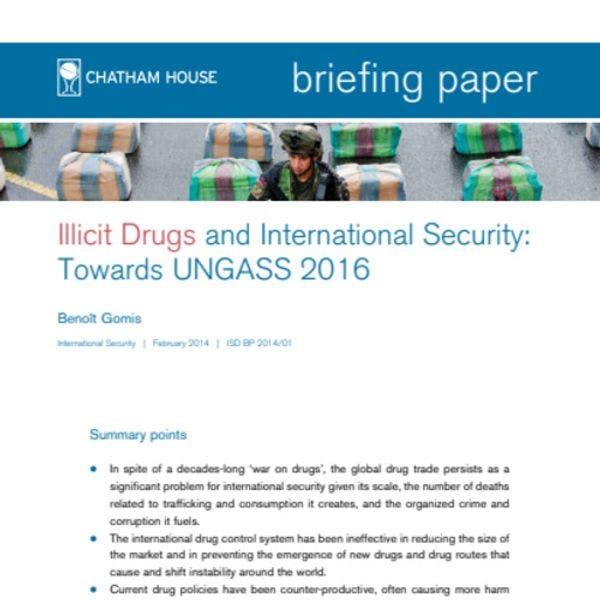Drogues et sécurité internationale : vers l'UNGASS de 2016
L’UNGASS de 2016 offre une opportunité pour les gouvernements de réviser et de réformer leurs politiques à l’échelle nationale et régionale.
Pour en savoir plus, veuillez lire les informations ci-dessous (en anglais).
Abonnez-vous à l'Alerte mensuelle de l'IDPC pour recevoir des informations relatives à la politique des drogues.
In spite of a decades-long 'war on drugs', the global drug trade persists as a significant problem for international security given its scale, the number of deaths related to trafficking and consumption it creates, and the organized crime and corruption it fuels. The international drug control system has been ineffective in reducing the size of the market and in preventing the emergence of new drugs and drug routes that cause and shift instability around the world.
Current drug policies have been counter-productive, often causing more harm than the drugs themselves through capital punishment for offences, widespread incarceration, discrimination in law enforcement, violation of basic human rights in forced 'treatment' centres, and opportunity costs.
In the last three years, the drug policy debate has evolved more than in the previous three decades. There remain a number of political obstacles to making recent developments sustainable ahead of the UN General Assembly Special Session (UNGASS) on drugs in 2016, but these should not be used as excuses for continuing with a failed status quo.
Keep up-to-date with drug policy developments by subscribing to the IDPC Monthly Alert.
Téléchargements
Sujets
Régions
Profils associés
- Chatham House
